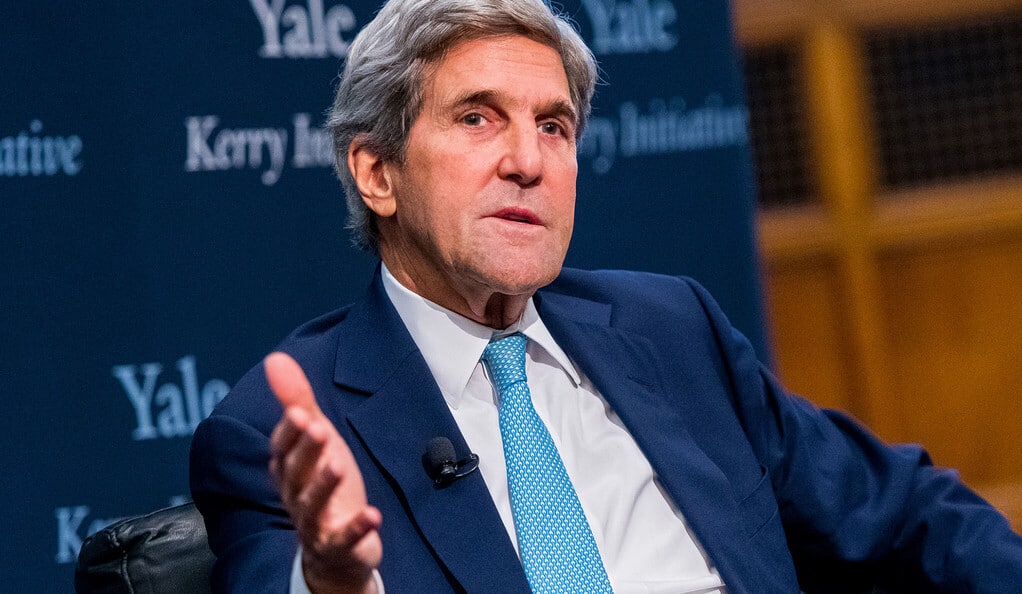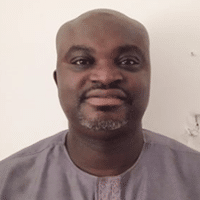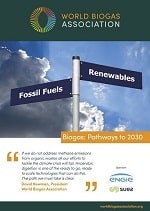
Kerry’s right hand man places action on methane
at the top of climate agenda
Action on methane emissions has been placed firmly at the top of the climate agenda with the appointment of Rick Duke, the Senior Director and White House Liaison for the Special Presidential Envoy for Climate  John Kerry, as co-chair of the Climate & Clean Air Coalition (CCAC).
John Kerry, as co-chair of the Climate & Clean Air Coalition (CCAC).
Working alongside fellow co-chair Peter Justice Dery, Director, Environment Division Ministry of Environment, Science, Technology and Innovation (MESTI), Ghana, the CCAC will seek to build on last year’s Global Methane Assessment (GMA) which concluded that tackling methane emissions caused by human activity is the most ‘immediate and cost-effective’ way to deliver the Paris Agreement target to keep global warming below 2C, ideally 1.5C.
AD was recognised as one of the readily available technologies that can deliver this at low cost, especially in the waste sector. The election of Duke sends a clear message that the recommendations of the GMA report are practical and achievable.
On his appointment Duke said in an interview with CCAC, “There is nothing else that can help to control the climate crisis as quickly. The GMA is already helping to signal that this is a massive opportunity that stakeholders should prioritise for investment.”
The Kigali precedent
To make this happen Duke says, “We need governments working on the standards and regulations, but we also need multilateral development banks to help scale up investment in methane solutions. We also need NGOs to support and develop a pipeline of investable projects and help identify policy options for governments.
“We need the private sector to step up and respond to all this activity by investing in things like leak detection and repair for fossil fuel systems and scaling up agricultural methane reduction strategies. The CCAC is well placed to help bring all those players together.”
Duke has a track record of successfully delivering such a project. He was a prime mover alongside John Kerry, then Secretary of State to President Obama, behind the Kigali Amendment to the Montreal Protocol, which, in 2016 mobilised global action on hydrofluorocarbons (HFCs), highly potent greenhouse gases that have a global warming potential 1000’s of times that of carbon dioxide (CO2).
He said, “An important lesson we can learn from the multi-year effort it took to get the Kigali Amendment done is that it’s important to have clarity about the prize at the end of the campaign early on. There were studies done, including contributions from the CCAC, that clarified that this was a massive opportunity to contain climate change. As a result, world leaders recognised that this was an extraordinary opportunity and put it high on their list of diplomatic priorities.”
Mobilising action on methane
To replicate the success of the Kigali Agreement, Duke says we need to ensure that governments and industry have the ability to scale up solutions ranging from capturing methane from landfills and collecting  methane from agricultural facilities.
methane from agricultural facilities.
This is all going to require the parallel scale up of investment and infrastructure to deliver on the kind of methane reductions that the CCAC and GMA has underscored as both possible and necessary to managing the risks of climate change in the very near term.
Dery meanwhile has a track record of mobilising regionally and locally. Aside from his government post he is also Chairman of the Governing Board of the West African Science Centre for Climate Change.
He has coordinated several initiatives, including the CCAC Supporting National Action Planning/Institutional Support project, the development of Ghana’s INDCs to the UNFCCC, the implementation of environment and climate related projects at the national and community level notably, the Ghana Adaptation Fund Project, Partnership Action on Green Economy (PAGE) Project, Green Climate Fund Readiness Project and NDC Support Programme.
 Methane on WBA
Methane on WBA
At the start of the year WBA released its landmark report, Biogas: Pathways to 2030, calling for urgent action on methane. The report presents a blueprint for actions all countries can take, concluding that at its full potential AD and biogas can deliver a 10% cut in greenhouse gases by 2030.
Meanwhile the EU’s methane strategy is hinged on AD and biogas, tackling emissions from the agriculture, waste and energy sectors.
This year’s WBA World Biogas Summit was promoted with the slogan, “It’s all about the methane”. The Summit was addressed by Drew Shindell, Special Representative for Action on Methane, CCAC, and lead author of the GMA, jointly commissioned by CCAC and the UN Environment Programme. Mr Shindell’s presentation can be viewed here.
John Kerry (Yale University/John Hassett)


